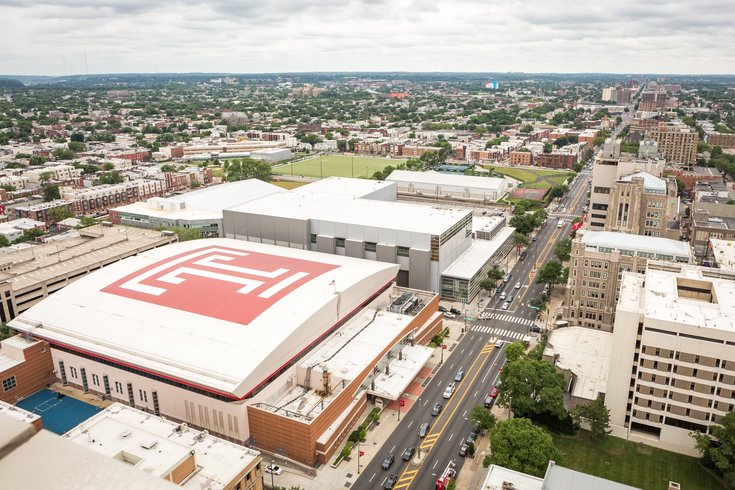
July 23, 2018
 Thom Carroll/PhillyVoice
Thom Carroll/PhillyVoice
Temple University, the Liacouras Center and North Philadelphia.
One million dollars in Pennsylvania state funding will be used by Temple University to make addiction medication more accessible throughout the Philadelphia region.
The new initiative speaks to the need for not only therapy to deter drug addiction, but also for medications that stabilize and thwart cravings. Despite the opioid crisis throughout Philadelphia and the state, most medical professionals can't prescribe those types of medications. Though research has pointed to their effectiveness, most treatment programs have not yet started to include them.
With funds from the Pennsylvania Coordinated Medication Assisted Treatment program (PAC-MAT), reflecting a piece of the $3 million in grants the Wolf Administration awarded last week, Temple's main campus will soon be home to an expanded addiction clinic, helping create a network of doctors in the area.
Also receiving $1 million grants were the Wright Center in Scranton and UPMC Pinnacle in Harrisburg.
"The Temple Center for Population Health will use this PAC-MAT grant funding to implement a hub and spoke model to improve access for our patients who require medication-assisted treatment for opioid use disorder," said Dr. Susan Freeman, the chief medical officer for Temple University Health System, in a statement.
The clinic, Temple Recovery Using Scientific Treatments (TRUST), will expand "as the hub to provide expertise and resources to surrounding community-based clinics," Freeman said.
With this new round of grants, eight health systems across Pennsylvania have adopted this hub-style model, reflecting the administration's efforts to make treatment accessible across the state.
Temple's TRUST clinic is estimated to treat at least 300 patients over the next 10 months under the terms of the grant.